27 Apr Types of Liquid Tanker Trailers
Liquid tanker trailers are essential equipment for transporting large quantities of various types of liquid products. But not all liquid tanker trailers are created equal, and choosing the right trailer for your needs is crucial. In this article, we'll provide an overview of the types of tanker trailers available from Dragon Products, their unique features and benefits and the applications for which they are best suited.
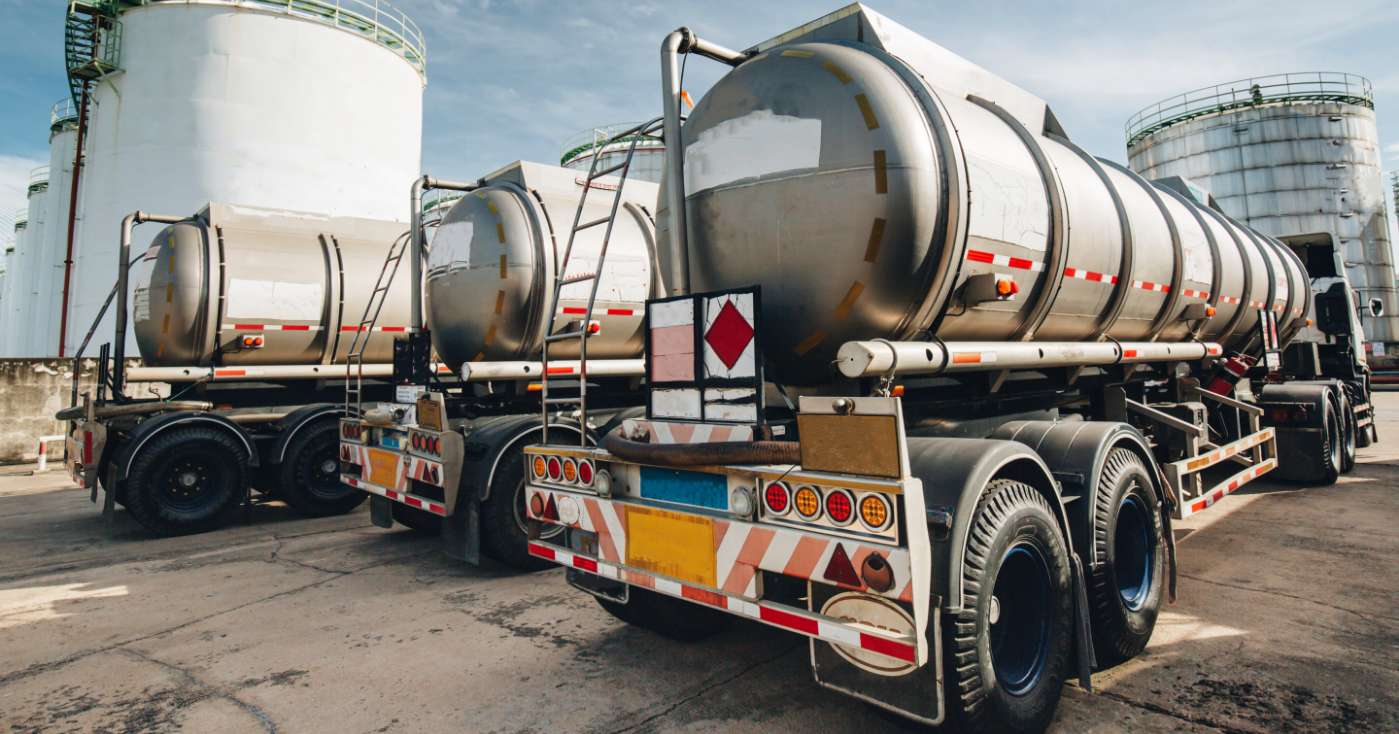
The Purpose of Liquid Tank Trailers
Liquid tank trailers are a type of transportation equipment specifically designed for carrying and transporting liquids such as water, chemicals, petroleum products or food-grade liquids. These trailers are typically made of sturdy materials such as stainless steel or aluminum to ensure they're durable and can withstand the rigors of long-distance travel. They're equipped with a tank that can hold a large volume of liquid and have specialized fittings and valves to facilitate loading and unloading. Liquid tanker trailers are used by the agriculture, food processing and oil and gas industries to transport liquids from one location to another.
Choosing the Right Liquid Tanker Trailers
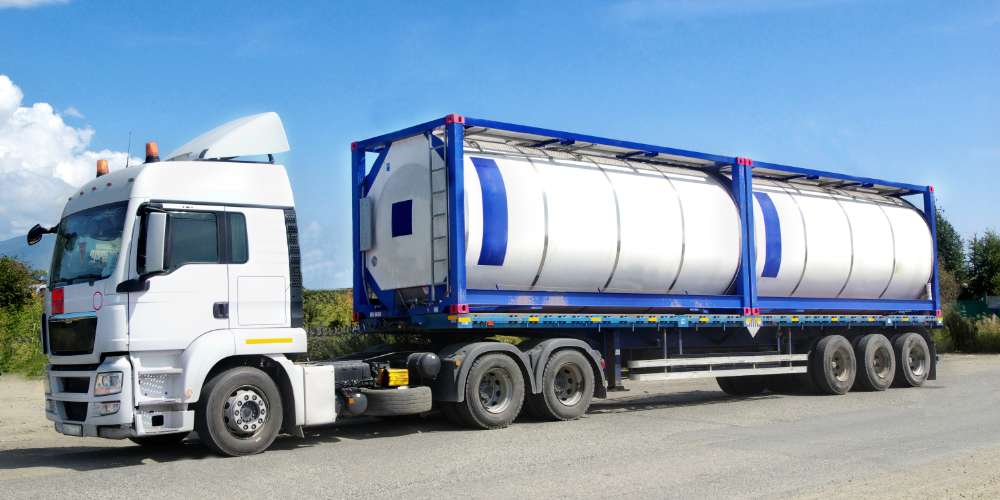
Choosing the best liquid tanker trailers for your needs will depend on these factors:
- Type of cargo you need to transport
- Distance you need to travel
- Regulations that apply to your industry
Factors to consider include:
- Tank capacity
- Weight restrictions
- Compatibility with your cargo
It's helpful to work with the experts at Dragon Products, who can provide expert guidance on selecting the best liquid tank trailers for your needs.
Different Types of Tanker Trailers
There are several different types of tanker trailers, each designed to serve a specific purpose. Let's delve into some of the most common types of tanker trailers.
Chemical Tanker Trailer
This specialized trailer is designed to transport hazardous chemicals and liquids that require a high level of safety and security. A chemical tanker trailer is typically made of stainless steel or aluminum and designed to withstand the corrosive and potentially hazardous nature of the materials being transported. It's equipped with multiple compartments to transport different types of chemicals safely. These industries use chemical liquid tank trailers to transport acids, solvents and flammable liquids:
- Chemical
- Pharmaceutical
- Petrochemical
Crude Hauler
A crude hauler is designed to transport gasoline, diesel and other fuel types. It's generally equipped with multiple compartments and pumping systems for efficient loading and unloading. Separate compartments also allow you to carry more than one type of fuel in your tank.
A crude hauler is designed to transport products like:
- Gasoline
- Jet Fuel
- Ethanol
- Diesel
In addition, a crude hauler can enhance the trailer's safety by preventing a liquid surge. At least 6 different factors can cause a liquid surge in a tank trailer:
- Sudden acceleration or deceleration
- Cornering
- Sloshing
- Uneven weight distribution
- Wind
- Improperly secured cargo
Given the hazardous nature of the products a crude hauler transports, it's no wonder these liquid tank trailers are subject to stringent regulations.If you're in the market for a crude hauler, choose a reputable dealer like Dragon Products to ensure their tankers comply with all necessary safety regulations.
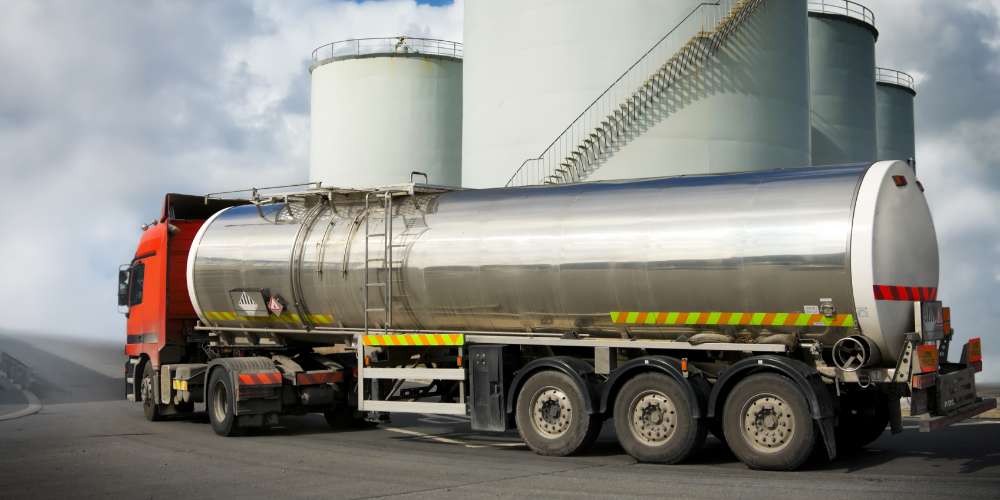
Vacuum Trailer
A vacuum trailer is used for transporting and disposing of waste liquids such as sewage, sludge and industrial wastewater. It's designed with a vacuum pump system to suck up and transport waste materials. Cities often use these vacuum trucks to manage the large-scale clean-up of sludge and liquids in sewers and septic systems. Vacuum trailers can also be used in municipal and industrial applications to suction remaining debris and water from drilling or hydro-excavation job sites. They're must-haves for environmental and industrial clean-up and waste management.
Food-Grade Liquid Tanker Trailers
Food-grade liquid tanker trailers are designed to transport food and other consumable liquids such as milk, juice and wine. They're constructed using stainless steel, aluminum or food-grade plastic to ensure the safety and quality of the products being transported.
Water Tanker Trailers
Because they're capable of transporting large volumes of water, water tanker trailers are commonly used in agriculture, construction and firefighting operations for a variety of purposes, including:
- Water supply: Liquid tanker trailers are used to deliver fresh drinking water to areas where it may be in short supply, such as rural communities or regions affected by natural disasters.
- Firefighting: Firefighters use water tankers to transport water to the site of a fire, particularly in areas that may not be accessible to a reliable water supply.
- Construction: Construction sites use liquid tanks to provide a water source for dust control, mixing concrete and other construction-related tasks.
- Agriculture: Farmers use liquid tank trailers to haul water to crops or livestock in areas where water may be scarce.
LPG/LNG Transport Trailer
A liquefied petroleum gas (LPG) trailer or liquefied natural gas (LNG) transport trailer is a specialized vehicle that transports and delivers these gases to various destinations. LPG and LNG are used for several purposes, including heating and cooking in residential and commercial settings, fueling vehicles and powering industrial processes. An LNG/LPG transport trailer is made to withstand high pressures and extreme temperatures, ensuring the gas is transported safely and efficiently. It's commonly used by gas, transportation and industrial businesses that rely on these gases for their operations.
Asphalt Tanker Trailer
Also known as a hot product tanker trailer, an asphalt tanker trailer is a specialized vehicle used for transporting and delivering liquid asphalt or bitumen to various destinations. Asphalt is a thick, sticky, highly viscous substance commonly used for road construction and maintenance, roofing and other industrial applications. Asphalt tanker trailers are designed to transport this material at high temperatures to keep it in a liquid state. These tanker trailers are usually equipped with insulated tanks and heating systems to maintain the asphalt's temperature during transport. An asphalt tanker trailer is most often used by construction and paving companies and asphalt production and distribution businesses. It's critical to ensure that asphalt is delivered safely and efficiently to job sites and other destinations.
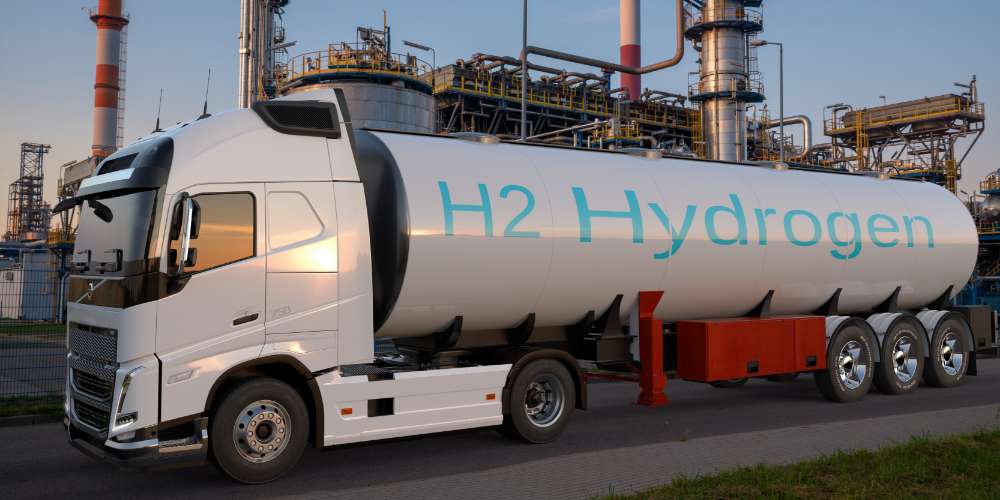
Frequently Asked Questions About Different Types of Tanker Trailers
Given all the different types of tanker trailers, it's not unusual to have questions about them. We've answered a few of these here, but if you want more details about our tanker trailers or any of the equipment we provide, please get in touch.
What Are Liquid Tanker Trailers?
Liquid tanker trailers are specialized vehicles that transport liquids, gases or bulk solids in large quantities. They consist of a tank mounted on a chassis that's pulled by a truck or tractor.
What's the Difference Between an LNG and an LPG Transport Trailer?
LPG and LNG are both hydrocarbon gases. Liquefied Natural Gas (LNG) and Liquefied Petroleum Gas (LPG) transport trailers are specialized vehicles for transporting and delivering these gases to various destinations. LPG – aka butane or propane – is highly flammable and includes a mix of hydrocarbon gases. LPG is prized as a clean, portable, energy-efficient and affordable fuel. It's used to power heating and cooking appliances and to fuel vehicles.
LNG is a natural gas chilled to liquid form. This process transforms natural gas into a non-pressurized material that can be transported and stored safely, easily and affordably. It occupies far less volume than natural gas, which means it's also a space saver. LNG is odorless, colorless, non-toxic, non-corrosive and eco-friendly. It's used to operate expensive and sensitive machinery and equipment.
How Are Tanker Trailers Loaded and Unloaded?
Liquid tanker trailers are typically loaded and unloaded through the top or bottom of the tank, depending on the kind of cargo being transported. Some tankers have built-in pumps or compressors to facilitate loading and unloading.
How Are Tanker Trailers Maintained?
Tanker trailers require regular maintenance and cleaning to ensure safe and reliable operation. This includes inspections of the tank, chassis and mechanical components — and cleaning and testing the tank to ensure it's free from leaks and contamination.
What Safety Measures Are Required When Operating Liquid Tanker Trailers?
Operators of tanker trailers must adhere to strict safety guidelines to prevent accidents and spills. This includes proper loading and unloading procedures, regular maintenance and inspections and compliance with hazardous materials transportation regulations.
Dragon Products Has Liquid Tank Trailers to Help You Haul Effectively
As a leading manufacturer of high-quality liquid tank trailers, Dragon Products offers a wide range of options to meet the unique needs of different industries. With a focus on safety, durability and reliability, our trailers are built to endure the most demanding conditions and ensure the safe transport of liquids. In addition, Dragon Products offers exceptional customer service, providing support from the initial purchase to ongoing maintenance and repairs. With a reputation for excellence and devotion to quality, buying liquid transport trailers from Dragon Products is a smart investment for businesses needing reliable transportation for their liquid cargo. Let's find the right solution so you can start hauling ASAP!
CONTACT US


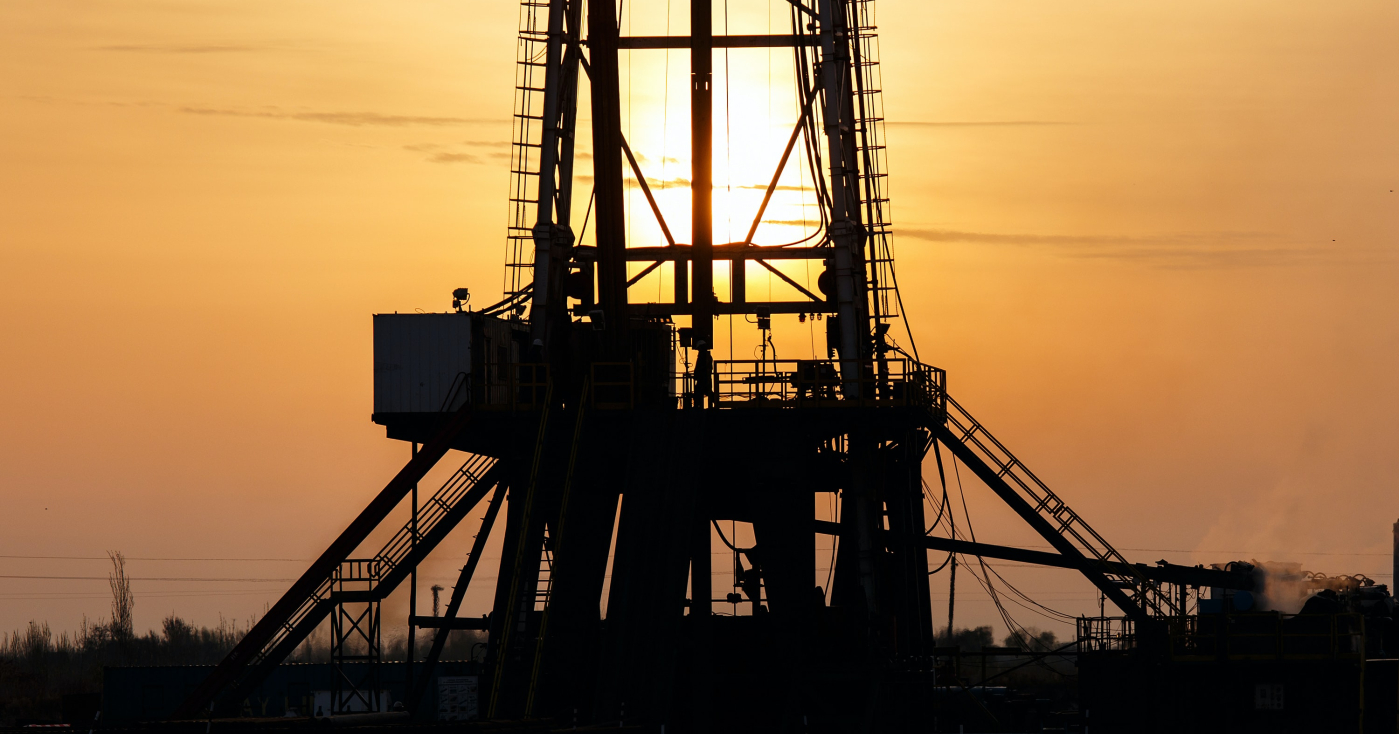
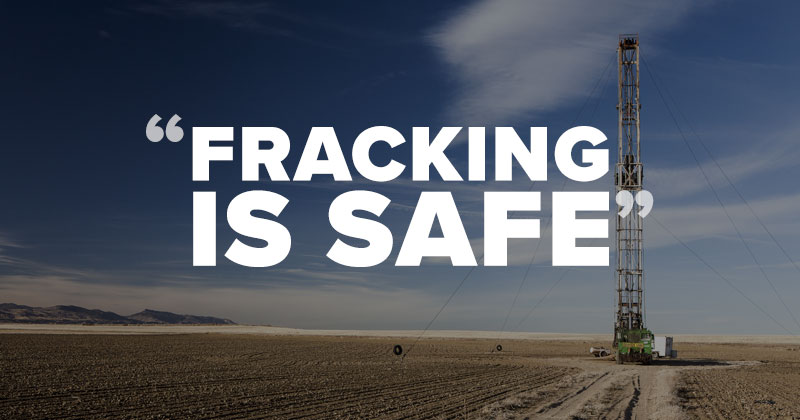
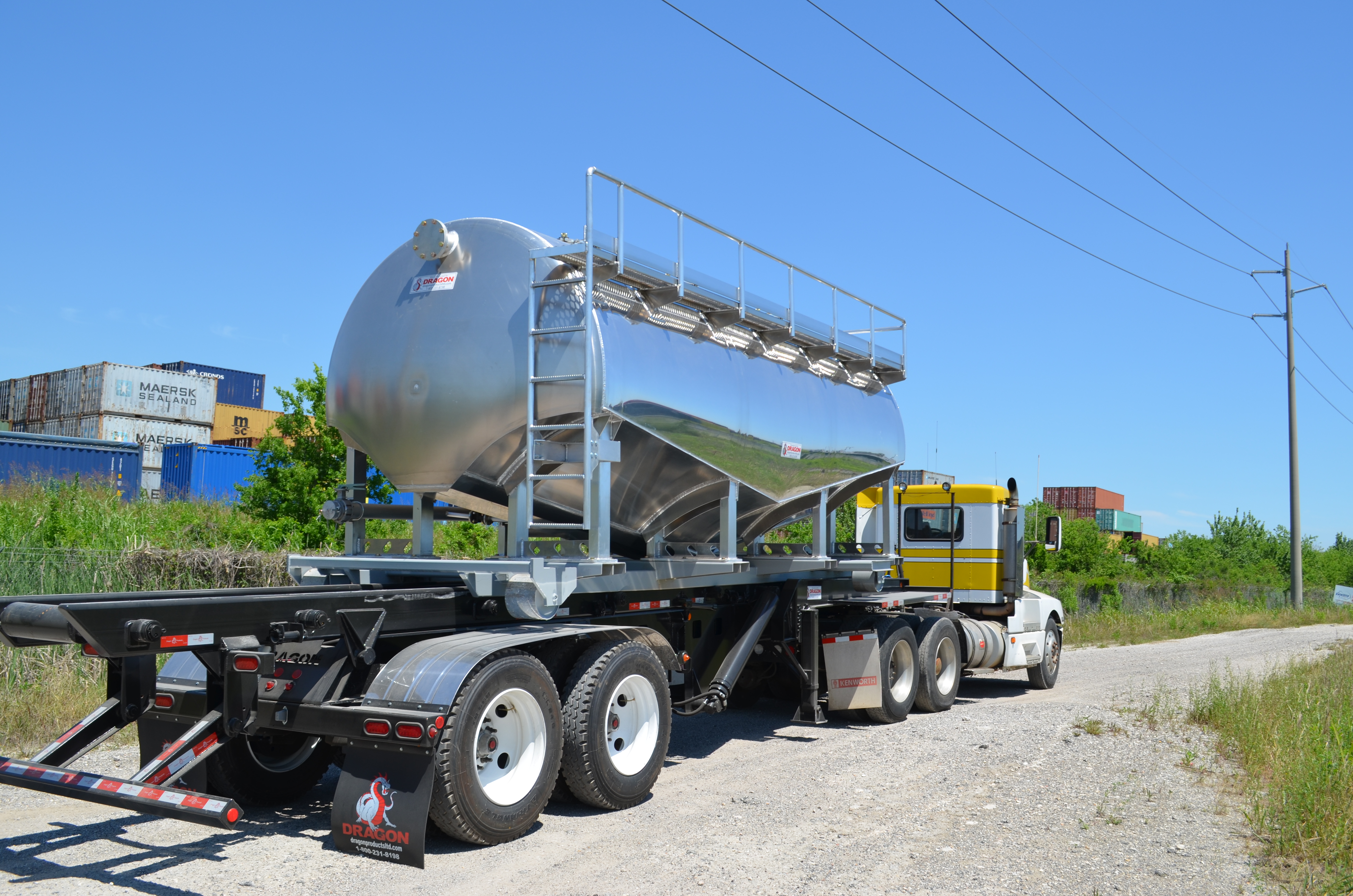
Sorry, the comment form is closed at this time.